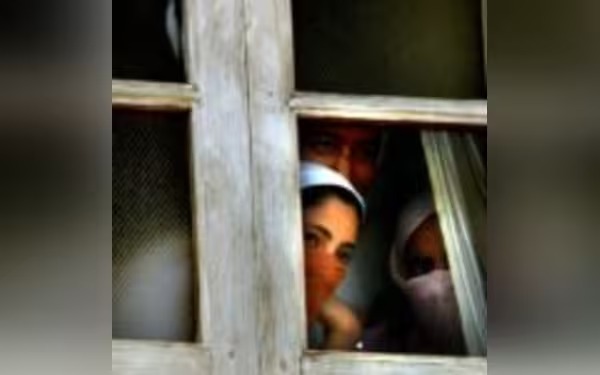Saturday, November 16, 2024 07:32 PM
Kashmiri Women’s Suffering Highlighted at Geneva Seminar
- Kashmiri women face severe human rights violations.
- International community urged to advocate for justice.
- Mass rape incidents remain unaddressed in Kashmir.
 Image Credits: pakistantoday
Image Credits: pakistantodayKashmiri women's suffering highlighted at Geneva seminar, urging global action against human rights violations.
In recent years, the Kashmir conflict has drawn international attention, particularly regarding its impact on women. The ongoing strife has led to severe human rights violations, with women bearing the brunt of the violence. At a recent seminar in Geneva, titled "Women in Conflicts," speakers shed light on the harrowing experiences of Kashmiri women, emphasizing the suffering inflicted by Indian state terrorism. This event was organized by the International Muslim Women’s Union in collaboration with the Kashmir Institute of International Relations (KIIR) and other organizations, bringing together a distinguished panel of human rights activists, academicians, and international law experts.
The panel included notable figures such as Ms. Shamim Shawl, Ms. Caroline Handschin Moussir, Barrister Margaret Owen, and others who passionately discussed the plight of women in Kashmir. They highlighted the immense physical and psychological trauma that these women have endured due to the ongoing conflict. The speakers called upon global human rights organizations to take action and put an end to the violence and mistreatment perpetrated by Indian forces.
One of the most distressing topics addressed was the continued trauma faced by women in occupied Jammu and Kashmir. The speakers referenced multiple incidents of mass rape, notably the infamous Kunan-Poshpora case. Despite 32 years having passed since this tragic event, justice remains elusive for the victims, as the case was closed in 1991 under pressure from the Indian army. This lack of accountability has left many feeling hopeless and abandoned.
The speakers condemned the use of sexual violence as a weapon of war by Indian forces, criticizing the Indian judiciary for its failure to hold the perpetrators accountable. They also denounced the Indian government’s attempts to suppress the Kashmiri people’s fight for self-determination through brutal tactics. One speaker remarked, "It is hypocritical for a nation that claims to be progressive to use rape as a weapon of war," highlighting the stark contrast between India's self-proclaimed image and the reality faced by Kashmiri women.
As the seminar concluded, it became clear that the struggle for justice and human rights in Kashmir is far from over. The voices of these women must not be silenced, and the international community has a crucial role to play in advocating for their rights. It is essential for global citizens to remain informed and engaged, as awareness is the first step towards change. The plight of Kashmiri women serves as a reminder of the broader issues of human rights and the need for accountability in conflict zones around the world.













